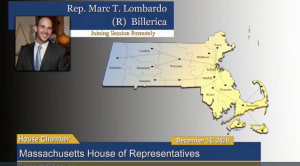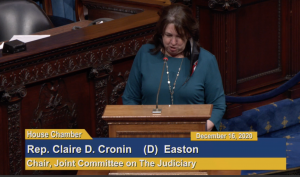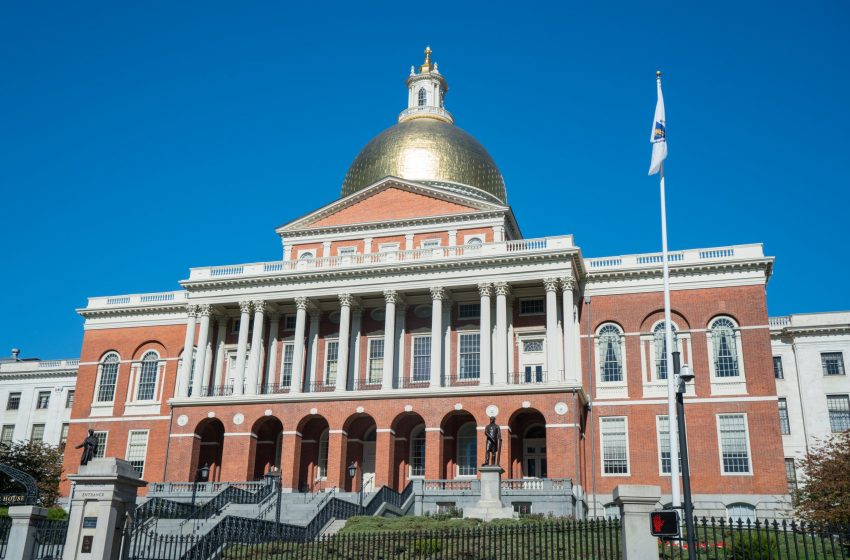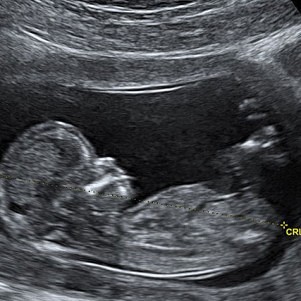Massachusetts House Rejects Born-Alive Amendment
By Matt McDonald | December 17, 2020, 1:18 EST
The Massachusetts House of Representatives rejected an amendment Wednesday that would require a physician to try to save the life of a baby born after an attempted abortion.
The amendment, which reflects the language in current state law, failed on a 30-120 vote.
Two Republican legislators filed the proposed amendment onto a bill seeking to expand access to abortion in the state. (It’s Massachusetts House Bill 5179.)
“This amendment refers to a baby, born alive, having survived an abortion attempt. We’re talking about a human being outside of the womb,” said state Representative Marc Lombaro (R-Billerica), during House debate on Wednesday, December 16.
“This amendment would reinstate our current law — that if a baby is born, the doctor is required to provide health care. My friends, who can possibly be against this?” Lombardo said. “Who among us doesn’t believe that a child out of the womb should receive medical care? Who among us believes that innocent babies should be left on a table to die? This is a fundamental question about what type of society we are going to be.”
Another sponsor of the born-alive amendment, state Representative Alyson Sullivan (R-Abington), said babies who survive an abortion deserve “the same life-saving medical treatment that anyone else would receive.”
“Mr. Speaker, how can we as a body support any language that does not require physicians to perform life-saving measures to a baby that is born alive during an abortion?” Sullivan said.
The abortion expansion bill seeks, among other things, to explicitly allow abortions after 24 weeks in cases where a fetus is diagnosed with a fatal malady expected to cause death shortly after birth. But critics call it an “infanticide” bill, because it would remove language in current state law that requires a doctor to try to save the life of a baby born alive after an attempted abortion.
Supporters of the bill say it’s meant to help women who find themselves in a tough situation.
A sponsor of the abortion expansion legislation accused opponents of spreading misinformation about abortion and about the bill.
State Representative Claire Cronin (D-Easton) decried what she called “false and cruel rhetoric being disseminated by those who seek to control the decision that she should be able to make for herself and her family.”
“We, as lawmakers, are not medical doctors. We don’t know the circumstances of every situation. There may be cases where administering certain types of care is warranted. But conversely, there may situations where it is not,” Cronin said during House debate Wednesday. “We need to allow physicians to provide medically appropriate care during these heart-wrenching scenarios, where the woman’s life or health is in danger, or the baby will not survive outside the womb. This amendment prevents a physician from making the decisions that are medically appropriate … for the woman and her family.”
The abortion expansion legislation began in early 2019 as a standalone bill called the ROE Act. That bill sought to eliminate the parental consent requirement in state law, expand public funding of abortion, and eliminate language in state law protecting babies born after an attempted abortion.
Supporters of the ROE Act bill were unable to get a legislative committee to vote on it. Instead, last month they tacked a watered-down version of the proposed legislation onto the state budget bill as an amendment. The new version of the proposed legislation would lower (rather than eliminate) the age when a girl needs the consent of a parent or a judge to get an abortion – from 17 and younger now to 15 and younger if the bill passes. It also restores a requirement that abortions performed after 24 weeks take place in the presence of life-saving equipment.
Last week, Governor Charlie Baker returned the new abortion amendment to the state Legislature with suggested changes. The governor opposes lowering the age when a girl needs the consent of a parent or a judge to get an abortion. He also suggests tightening the language describing when an abortion after 24 weeks can take place and adding penalties (jncluding fines and possible revocation of a medical license) for doctors who violate the state’s rules on late-term abortions.
The governor’s action effectively detached the abortion amendment from the state budget bill and made the abortion legislation a standalone bill again. His letter to the Legislature functions as an amendment to the bill, which legislators can accept or amend further or reject.
On Wednesday, December 16, the House rejected Baker’s amendment, 49-107.
Supporters of legal abortion expressed satisfaction with the vote and thanked Massachusetts House Speaker Robert DeLeo, who brought the legislation to a vote on the floor.
Thank you to @SpeakerDeLeo and to the members of the House for once again showing up for reproductive freedom. Massachusetts must continue to lead by removing medically unnecessary barriers to abortion care. #mapoli #ROEAct
— NARAL Pro-Choice MA (@ProChoiceMass) December 16, 2020
Opponents expressed outrage.
“Nine days before Christmas, 107 legislators voted to expand late-term abortions, let 16 and 17-year-old girls get abortions without their parents even knowing, and allow abortionists to refuse care to babies born alive,” said Andrew Beckwith, president of the Massachusetts Family Institute, in a written statement Wednesday night.
The Massachusetts Senate will also likely vote to reject Baker’s amendment. That vote could come as soon as Thursday, December 17.
At that point, the governor would have 10 days to sign the bill, veto the bill, or let the bill become law without his signature. If he vetoes the bill, the two chambers of the Legislature would have until January 5, 2021 to override his veto, which requires a two-thirds majority in both chambers.
The likely outcome in the Senate seems clear, since an overwhelming majority of state senators have already voted for the abortion expansion legislation. (The original vote in the Senate was 33-7, or 82.5 percent of state senators in favor.)
The margin is much closer in the House, where 156 of the 159 current members voted on the bill Wednesday. The 49-107 vote Wednesday on Baker’s amendments amounts to support from 68.6 percent, where 66 2/3 percent is needed.
If all 159 members vote, then supporters would need at least 106 votes to override a veto. They got 107 on Wednesday. That means that if opponents were able to persuade the three legislators who didn’t vote either to vote No or Present and also get two members who voted Yes on Wednesday to do the same, the bill would not be enacted.
To override the governor’s veto requires a vote in favor of the override “by two thirds of the members present,” according to the Massachusetts Constitution (Part the Second, Article II).
If the Senate votes on Thursday, December 17 to reject Baker’s amendments, then the governor would have until Sunday, December 27 to veto the abortion bill. If so, veto-override votes would likely take place either during the last week of December or during the first two workdays of 2021, which are Monday, January 4 and Tuesday, January 5.

Massachusetts state Representative Marc Lombardo (R-Billerica) spoke in favor of a born-alive amendment he sponsored on Wednesday, December 16, 2020.

Massachusetts state Representative Claire Cronin (R-Easton) spoke against the born-alive amendment on Wednesday, December 16, 2020.











